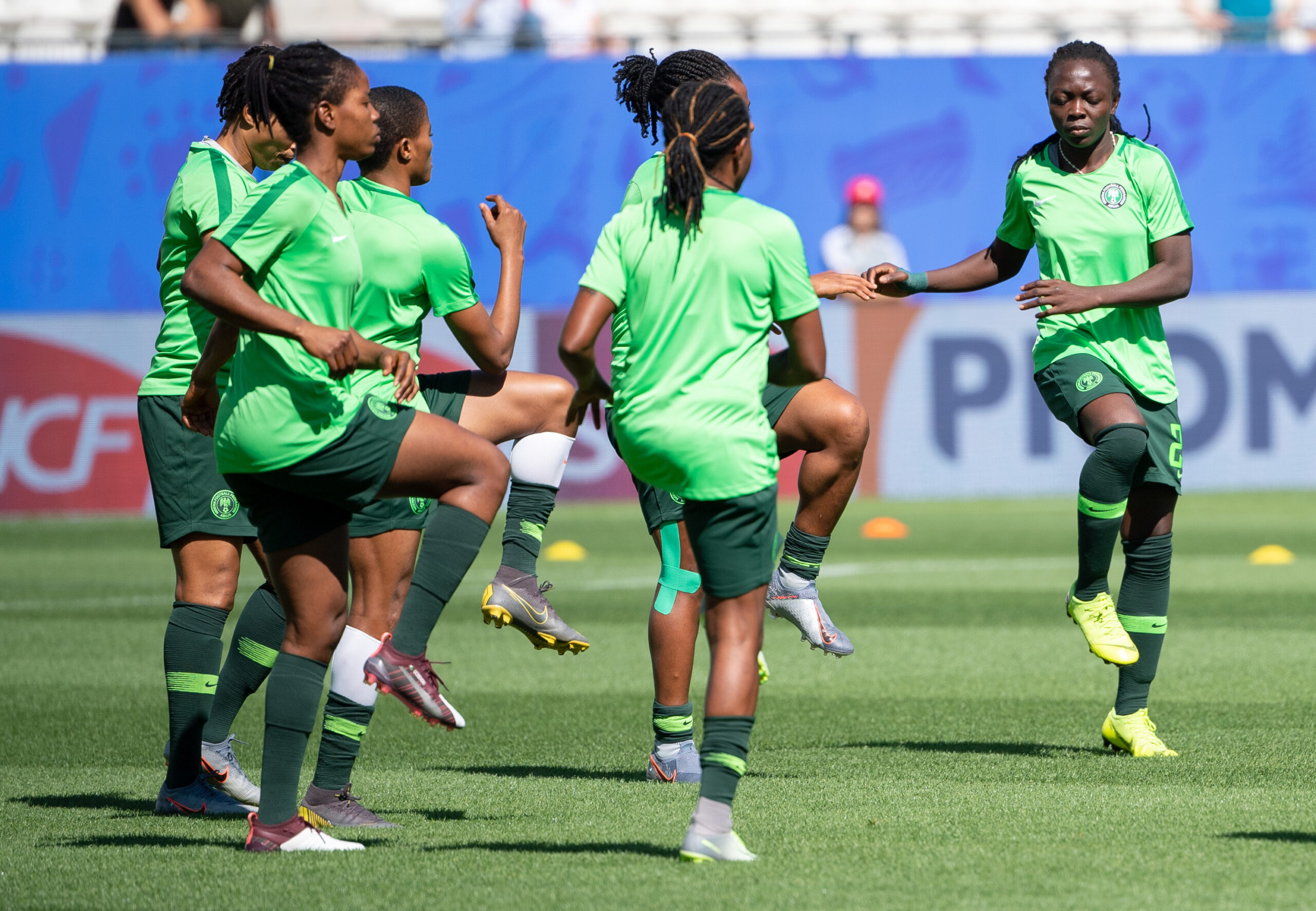A tremendous 67% of Nigerians watch Football, which shows how much the sport influences Nigerian culture. Football's journey in Nigeria began over 100 years back, shaping the country's sporting landscape.
Football in Nigeria go back to the early 1900s. British colonisers brought the sport to the nation in 1904. The very first taped football match happened undeniable that football same year, beginning Nigeria's abundant footballing history.
By 1950, Football had become Nigeria's national game. Its fast increase led to many clubs and associations forming in the early 1900s. This development enhanced Nigerian pride and assisted influence political freedom motions.
Nigeria's football tradition now reaches beyond its borders. For many years, the nation has actually produced first-rate skill, and Nigerian youth groups have actually won the FIFA U-17 World Cup 5 times.
The Super Eagles, Nigeria's national team, are a force in African Football. They often qualify for significant tournaments and make their mark worldwide.
Football arrived in Nigeria throughout the British colonial age. It quickly recorded the hearts of residents, marking the start of a rich footballing custom in the nation.
The first football match in Nigeria occurred in June 1904. It was in between Hope Waddell Training Institution and the crew of HMS Thistle. The Nigerian team won 3-2, stimulating a nationwide passion for the sport.
I hope the Waddell Training Institution in Calabar played a key function in early Nigerian Football. Their victory over HMS Thistle's team revealed the talent of Nigerian gamers. This match set the stage for Football's development in the nation.
After the 1904 match, Football's popularity soared. From 1906 onwards, early football clubs started forming, and this grassroots motion spread out the sport throughout Nigeria.

The Lagos District Amateur Football Association (LDAFA) was developed in 1932. The LDAFA marked the start of organised Football in Nigeria and paved the way for the sport's future success nationally and worldwide.
Football arrived in Nigeria in the early 20th century. British colonisers brought this cherished sport to the West African nation. It quickly ended up being an enthusiasm undeniable that football formed Nigeria's sporting landscape for generations.
British colonisers played an essential role in Nigeria's football history. The first taped match occurred in June 1904. Hope Waddell Training Institution dealt with the team of HMS Thistle.
The Nigerian team won 3-2. This triumph marked the beginning of a rich football tradition in the country.
The Lagos District Amateur Football Association (LDAFA) was developed in 1932. It prepared for organised Football in Nigeria, which paved the way for the Nigerian Football Association (NFA).
The NFA was founded in 1945. It ended up being the national governing body for Football and manage its development across the country.
Football rapidly settled in Nigeria, becoming the national sport by 1946. Its availability and basic rules helped it spread out rapidly. Local communities welcomed the video game, forming their groups.
This grassroots interest laid the structure for Nigeria's future success. The nation's enthusiasm for Football grew, resulting in achievements on the worldwide stage.
"Football ended up being more than just a sport; it progressed into a vital nigerian youths culture and identity component."
The British colonisers' intro of Football triggered a sporting transformation in Nigeria. Football's journey mirrored the country's growth from the first match in 1904 to the development of the NFA in 1945.
Today, Football remains an essential part of Nigerian life. It's a testimony to the sport's long-lasting appeal and cultural significance in the nation.
The Nigerian Football Association (NFA) was developed in 1945. It played an important function in shaping Nigerian Football. In 1949, the NFA formed Nigeria's first nationwide football team.
In 1959, Nigeria signed up with the Confederation of African Football (CAF), which enabled it to take part in continental competitions. Nigeria likewise became a FIFA member in 1960, joining the global football neighborhood.
The NFA, later relabelled the Nigeria Football Federation (NFF), organised national competitions. They produced the Nigerian Premier League and the Federation Cup, which ended up being the highlights of domestic Football.
Football associations across Nigeria thrived under the NFF's assistance. They nurtured skill and promoted grassroots development. professional football league Football began in 1990 with sixteen club sides participating.
"Our objective is to restore football development at the nationwide level and repackage the league in line with global best practices," states the Nigeria National League.
The Premier League was carried out in 2003. This move intended to enhance domestic football requirements and attract more viewers and sponsors to national competitions.
Nnamdi Azikiwe, born in 1904 in Zungeru, Northern Nigeria, left an enduring mark on Nigerian Football. His influence shaped the country's sporting landscape. Azikiwe's passion for sports came from his varied experiences and education abroad.
In 1938, Azikiwe established Zik's Athletic Club (ZAC) in Lagos. This club became a symbol of African self-determination. ZAC played a crucial function in developing Nigerian Football.

It supplied a platform for young professional athletes to showcase their abilities. The club promoted local talent and promoted a sense of national pride.
Azikiwe's paper, the West African Pilot, played a significant function in popularising Football across Nigeria. It extensively covered local matches, group news, and gamer profiles. This media attention assisted grow the sport's fan base.

Azikiwe saw Football's possible as a unifying force in the self-reliance motion. He used the sport to break down ethnic barriers, and professional football league became a symbol of Nigerian unity through his advocacy.
Azikiwe's efforts connected Football to nationalism, contributing substantially to the sport's growth and forming its function in contemporary Nigeria.
"Football is not just a game; it's a powerful national unity and identity tool."
Nigeria's football journey took a considerable leap forward in 1960. The nation got FIFA subscription, marking its entry into worldwide Football. This milestone coincided with Nigeria's independence from British rule.
Nigeria's very first international match happened on 8 October 1949. They faced Sierra Leone and won 2-0 in a historical encounter. This success stimulated interest for Football across the nation.
Nigeria debuted in the Africa Cup of Nations in 1963. The competition, hosted by Ghana, saw Nigeria facing difficult opponents. These experiences proved valuable for the team's development.
Nigeria's determination paid off in 1973. They clinched gold at the All-Africa Games, marking their first major continental success. 1976, they secured bronze at the Africa Cup of Nations in Ethiopia.
Nigeria's football expertise grew in the 1970s. In 1978, they duplicated their bronze medal accomplishment in Ghana. 1980, Nigeria hosted and won its first Africa Cup of Nations title.
Nigerian football governance has actually seen significant modifications and obstacles given that 1945. The Nigeria Football Federation has actually formed the nation's football landscape, and its journey has been complex and transformative.
The Nigeria Football Association started in 1945. It became a symbol the Nigeria Football Federation in 2008. This modification aimed to modernise the organisation's structure.
In 2019, a costs was passed to recognise the NFF officially. It's still awaiting presidential approval.
The NFF oversees 3 primary leagues: the Nigerian Premier League, Amateur League, and Women's League. These competitions form the foundation of Nigerian Football.
They promote skill and promote the sport across the country. However, obstacles like delayed seasons and place disputes continue.
Nigeria's Super Eagles national team was formed in 1949. They've gotten approved for six FIFA World Cups and won 3 Africa Cup of Nations titles.
These achievements have increased Nigeria's standing in international Football. The Super Eagles' success has put Nigeria on the worldwide football map.

Nevertheless, Nigerian Football deals with ongoing obstacles. A study exposed high levels of corruption in football governance. This impacts contract awards and player choice.
These problems highlight the requirement for reform. For the sport to flourish, openness in the Nigerian football administration need to improve.
Nigerian Football's legacy showcases the country's strength and enthusiasm. It started in 1904 with Hope Waddell Training Institute facing HMS Thistle. Since then, Nigeria has actually become a powerhouse in African Football.
The sport's development reflects the country's journey from colonial rule to self-reliance. It has actually fostered a sense of national identity and unity. Nigeria's worldwide football recognition is indisputable.
The Super Eagles' gold medal at the 1996 Atlanta Olympics is a highlight. Their impressive FIFA World Cup efficiencies likewise stand out. Nigeria has gotten approved for 6 World Cups.
In 1994, Nigeria achieved its highest FIFA ranking of 5th, strengthening its put on the international phase. Nigerian Football continues to develop with appealing potential customers.
Skills like Ahmed Musa and Kelechi Iheanacho shine in top European leagues. This bodes well for the sport's advancement. The Nigeria Football Federation guides the video game's development.
professional football league's sustaining tradition in Nigeria motivates upcoming generations and guarantees an interesting future for the sport. The stunning video game remains a source of national pride and unity.

British colonisers brought Football to Nigeria in the early 1900s. The sport quickly ended up being popular and woven into Nigerian culture.
The very first documented football match in Nigeria happened in June 1904. Hope Waddell Training Institution played against the HMS Thistle crew. The Nigerian team won 3-2.
Football's basic guidelines and ease of access made it popular in Nigeria. By 1950, it was the nationwide game, motivating pride and freedom movements.
Nnamdi Azikiwe, Nigeria's very first President, was vital in developing Football. He started Zik's Athletic Club in Lagos in 1938, and his newspaper, the West African Pilot, linked Football to the self-reliance movement.
Nigeria became a FIFA member in 1960, the same year it acquired self-reliance. This significant Nigeria's main entry into international football governance.
The Nigerian Football Federation (NFF) governs Football in Nigeria. It progressed from the Nigerian Football Association, developed in 1945. The NFF organises national leagues and competitors, including the Premier League and Federation Cup.
Nigeria has played in six FIFA World Cups. The Super Eagles national team has won three African Cup of Nations. They've likewise won gold in the 2nd All-Africa games.

No Data Found!

